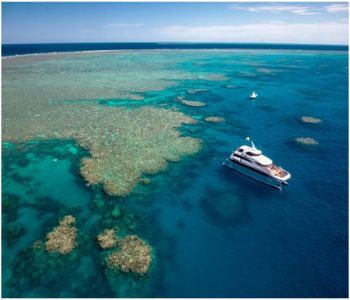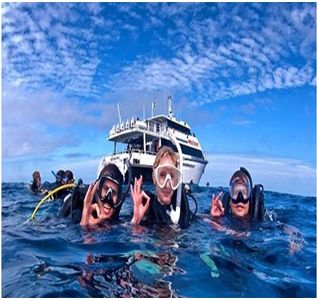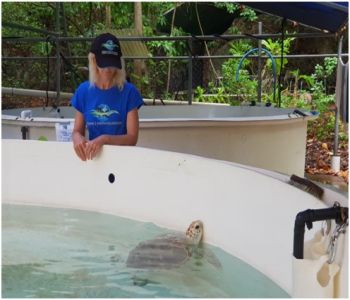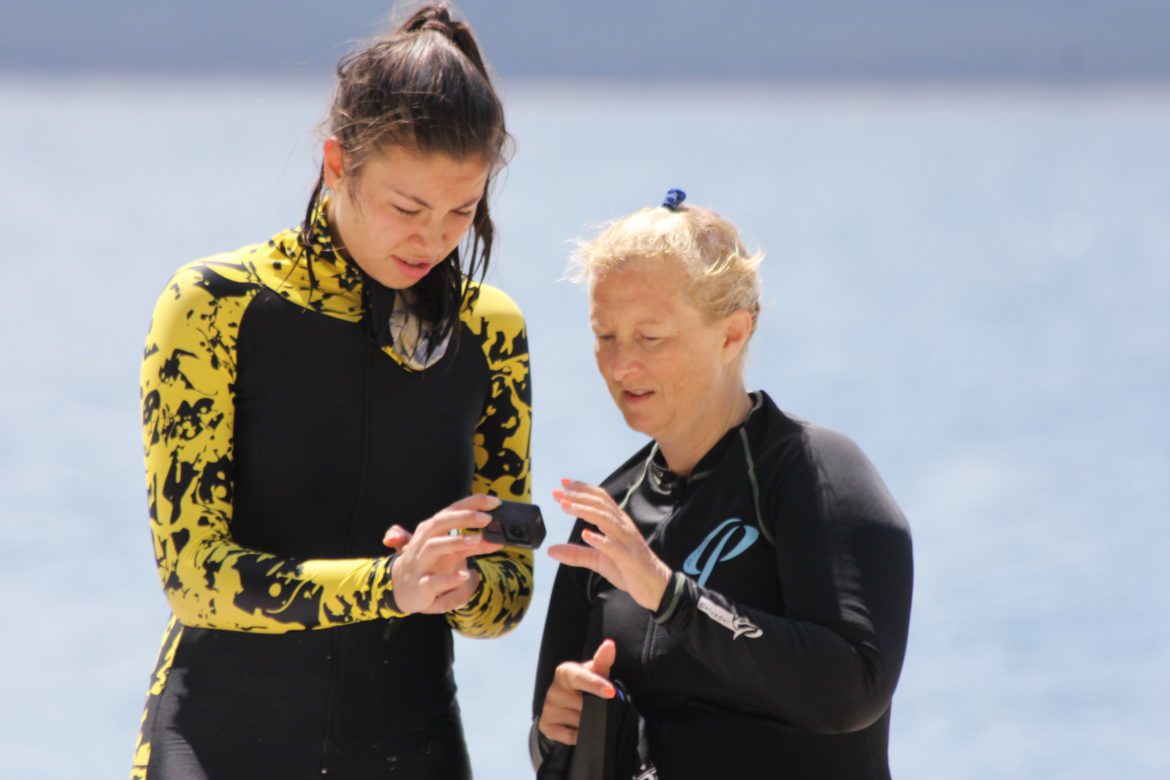Oceans 2 Earth Volunteers brings to you a new segment dedicated to updating you on current marine science and marine conservation related issues and stories.
The Great Barrier Reef Health Status
We all know this iconic reef as a World Heritage Listed site and one of the seven natural wonders of the world. Despite its value amongst Australians and international travellers alike, the reef faces many local threats including plastic pollution, decreased levels of water quality, costal developments and small scale and industrial fishing. However, the greatest threat to the Great Barrier Reef is the climate change crisis.
The Great Barrier Reef (GBR) ecosystem has seen a decline from ‘poor’ in 2014 to ‘very poor’ in 2019 as reported in the GBR Outlook Report by the Great Barrier Reef Marine Park Authority (GBRMPA).

The Bureau of Meteorology (BOM) have informed experts that sea surface temperatures on the GBR during the month of February 2020 were the hottest on record since records began in early 1900s. In the next 2 weeks to 1 month, experts are anticipating the peak of a bleaching event in response to the heat stress experience in the last month on the GBR. The GBRMPA are commencing aerial surveys to coincide with anticipated bleaching events which will be critical to monitor the extent and severity of the beaching to the corals.
BOM observing stations indicate a tropical low forecast so, dependent on rain, wind and cloud cover over the next few days/weeks, the temperatures on the GBR are expected to drop which will be a welcome relief.
What can you do to make a difference as a Marine Conservation Volunteer?
If you’ve read this and have a rush of inspiration to support and give back, then you’re probably thinking “How can I make a meaningful difference to the changing and threatened ecosystem on Great Barrier Reef?” Australian owned and operated international volunteering organisation Oceans 2 Earth Volunteers have several programs that marine advocates can participate in to help combat some of the threats this World Heritage site faces.


Oceans 2 Earth Volunteers’Great Barrier Reef Marine Conservation projectis highly committed to the protection of the coral reef ecosystem and sustainability. Marine conservation volunteers stay on a live board boat to acquire, or advance,their dive qualifications (Open Water, Advanced or Rescue Diver) in conjunction with a high-class SCUBA diving operator based on the outer reef of Cairns. Working and learning from a number of reef experts, volunteers gain experience undertaking underwater rapid monitoring surveys, fish identification surveys and coral health monitoring. Data gathered is used by the Great Barrier Reef Marine Park Authority to make informed decisions and understand the reef health status, the distribution of protected species and provide early warning signs of a changing environment. The project is perfect for those who are seeking a hands-on practical experience and wanting to make a significant contribution to the protection of the corals on the Great Barrier Reef.
If volunteers want to further contribute, there is an option to book a longer stay and spend a week at the turtle conservation and rehabilitation centre conducting behavioural studies on rescued sea turtles and beach clean-ups in the tropical North of Queensland.
Explore your options with Oceans 2 Earth Volunteers now

Countless animals depend on the GBR and its health, so whether you want to focus on coral health or the animals that dwell on the reef, apply now to become an ocean conservation volunteer and embark on a journey that will be rewarding for you and the environment, have significant positive impacts and be an experience to remember. If you have any questions about marine conservation volunteering in Australia, drop us a line here and sign up today for an experience of a lifetime.
Written by Megan Cundy, Marine Conservation Advocate for Oceans 2 Earth Volunteers


